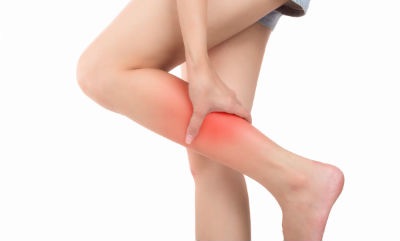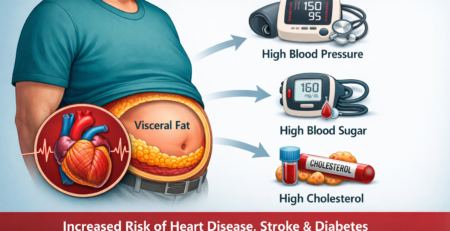Muscle Cramps, A Common Problem!
Sudden, Painful Spasms Of Muscles!
Muscle cramps is a sudden and very painful condition that most people have experienced some time or another in their lives.
Muscle cramps means a sudden, involuntary and very painful contraction of a muscle or a group of muscles that actually freezes a person in that position, making it very difficult to move.
Such cramps are more common in the calf muscles and occur more often at night, but cramps can occur in other muscles and anytime of the day too.
Common Causes of Muscle Cramps
Dehydration:
Loss of fluids through sweating or inadequate intake of water can disturb electrolyte balance.
Electrolyte Imbalance:
Low levels of magnesium, potassium, calcium, or sodium can trigger cramps.
Overuse or Strain:
Prolonged exercise or muscle fatigue can lead to cramps, especially in hot weather.
Prolonged Sitting or Standing:
Holding one position too long, particularly with legs bent or crossed.
Poor Circulation:
Reduced blood flow to muscles, especially in peripheral artery disease (PAD).
Nerve Compression:
Spinal nerve issues (like lumbar stenosis) can cause cramping pain, especially in legs.
Medications:
Diuretics, statins, or certain blood pressure medications can cause cramps.
Medical Conditions:
Diabetes, kidney disease, thyroid disorders, or liver cirrhosis.
Pregnancy:
Common in the second and third trimesters due to changes in circulation and pressure on nerves.
Treatment and Relief
Immediate Relief:
Stretching and Massage
Gently stretch (e.g., flex the foot for a calf cramp) and massage the cramped muscle
Apply Heat or Cold:
Use heat (e.g., warm towel or heating pad) for tight muscles.
Apply ice packs for soreness of muscles after that comes after the cramp.
Hydration
Drink adequate water or an electrolyte drink, especially after sweating or exercise.
Long-Term Management & Prevention
Stay Well Hydrated:
Drink plenty of water throughout the day.
Correct Electrolyte Deficiencies:
Eat foods rich in potassium (bananas, oranges), magnesium (nuts, legumes), and calcium (milk, leafy greens).
Stretch Regularly:
Gentle stretches before bed, especially if you get night cramps.
Adjust Exercise Routine:
Avoid overtraining and allow time for rest and muscle recovery.
Use Proper Footwear:
Use supportive shoes, especially if you’re on your feet a lot.
Medication Review:
Consult your doctor if cramps persist, or if they started after a new medication.
Also read the article ‘Occasional Heaviness Or Weakness In Legs Of Regular Walkers!’ on this website.
















